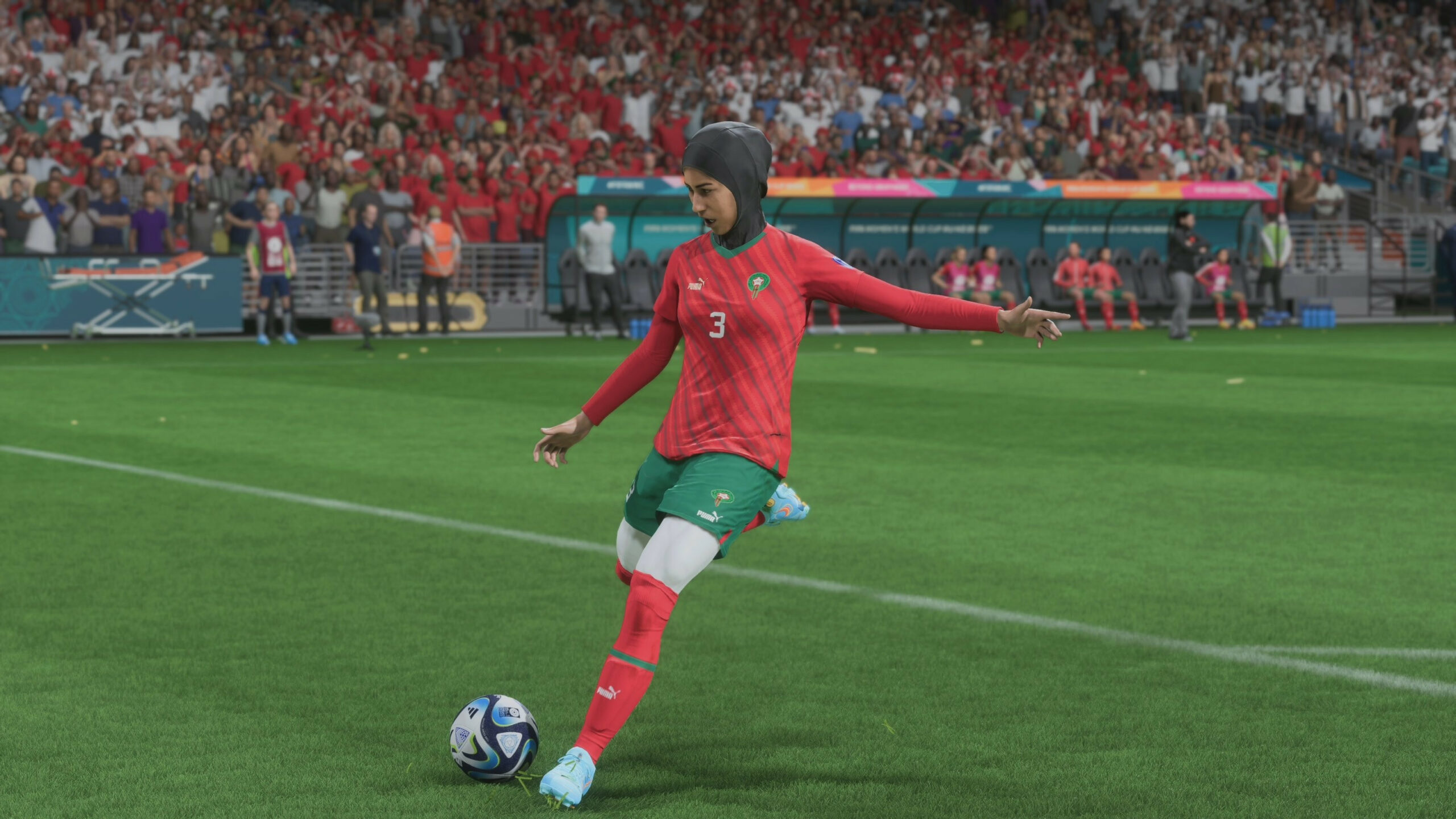In a groundbreaking move, FIFA 23 has added a player wearing a hijab for the first time in the history of the series. During the 2023 FIFA Women’s World Cup, Nouhaïla Benzina from Morocco made history by becoming the first player to compete in a World Cup match while wearing the Islamic headscarf.
In the latest update for FIFA 23, EA has taken a step forward by updating Benzina’s player model to include a hijab. The patch notes explicitly mention this significant change, stating that they have ‘updated Nouhaïla Benzina’s player model to include her head covering’.
The acceptance of hijab in real-life football is a relatively recent development. FIFA had previously banned the usage of head coverings, citing potential risks of injuries to the head and neck. However, this strict stance was amended in March 2014, allowing players to wear head coverings for religious reasons.
FIFA 16 was the first game in the series to feature women’s teams, providing a selection of national teams to choose from. Progress in this area remained stagnant until FIFA 23, which introduced women’s club teams for the very first time. The inclusion of the Barclays Women’s Super League from England and the D1 Arkema from France marked a momentous step forward.
In the upcoming game, EA Sports FC 24, women will be added to the immensely popular Ultimate Team mode, allowing players to create teams that consist of both male and female players. Executive producer John Shepherd expressed the belief that the FIFA series can play a vital role in promoting women’s football, stating, ‘We just have this conviction that we believe we want to unite the world around football. Ultimate Team is a great place for that.’
Senior producer Sam Rivera addressed concerns about potential backlash to the inclusion, clarifying that Ultimate Team is a fantasy mode that does not adhere to strict realism. He emphasized, ‘Ultimate Team is a fantasy mode. You don’t see Mbappe playing with all the Icons. It’s Ultimate Team—fantasy football is what’s happening there.’
With the addition of a hijab-wearing player in FIFA 23, the game demonstrates its commitment to inclusivity and representation in the world of football. By incorporating diverse teams and players, the FIFA series can inspire and engage a broader audience, fostering greater acceptance and recognition for all.
This landmark moment in the FIFA franchise symbolizes the significant progress being made towards a more inclusive and diverse landscape in the world’s most popular sport. It serves as a powerful reminder that football is for everyone, regardless of their background, culture, or religious beliefs.
As FIFA 23 continues to break barriers and push boundaries, fans eagerly await further developments and enhancements that will continue to shape the future of the game and the sport it celebrates.










